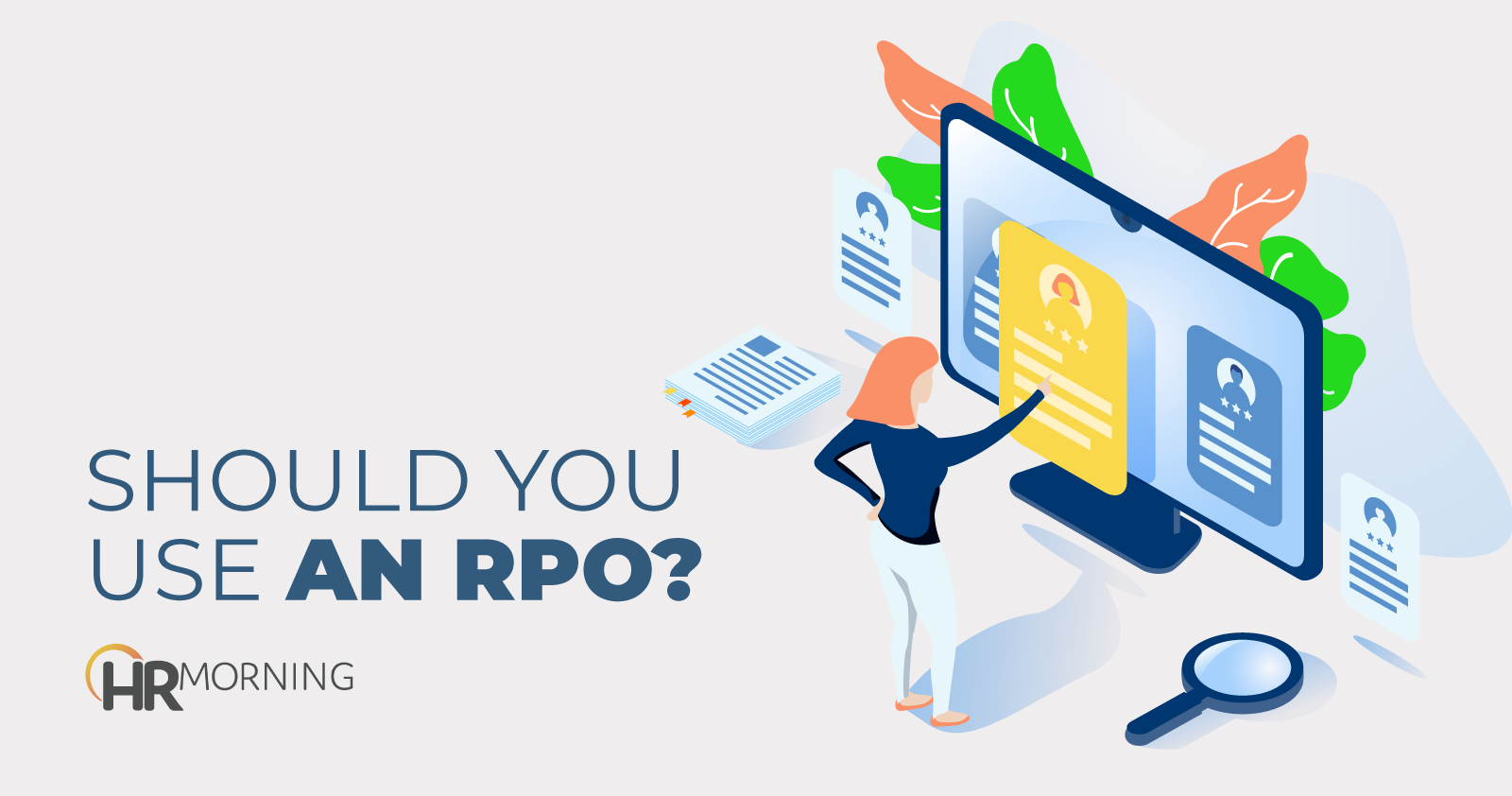How can HR streamline talent acquisition and still get top talent? RPOs might be your answer.
Talent acquisition is undeniably important. A good talent acquisition program can help you attract and retain top talent for your company. However, one thing many companies might grapple with is the decision to outsource their talent acquisition with a recruitment process outsourcing (RPO) model or keep it in-house.
Here are pros and cons before you come to a final decision.
Pros of outsourcing
There are many benefits to using an RPO compared to in-house recruiting.
Flexibility within the team
Outsourcing talent acquisition increases flexibility for your company. If an HR department isn’t bogged down with interviews and recruiting, it frees them up to do tasks that will help your core business, such as improving company culture and staying on top of payroll.
Quality hires
When you use an RPO, the quality of hires can increase. In contrast to an HR department, which often wears many hats, an RPO is focused solely on recruiting and finding your company the perfect fit.
RPO firms can help you determine and locate the best candidate for the job. In-house hiring managers may search for candidates only when positions are open, while outsourcing firms look at candidates more regularly, which can help them find the perfect one for your company, culturally and technically.
Scaling options
RPO models are designed to meet the specific needs of your company. For instance, if your company is a start-up looking to grow, an RPO might help you hire more people in a short amount of time and get your business where it needs to be.
However, once you’re where you want to be with employees, you can scale down your talent acquisition. On the flip side, maybe a company uses an RPO to fill vacant positions but decides to rebrand and invest in some core departments. Then they can scale up the RPO to meet needs.
Cost-effective options
Oftentimes, an RPO model is more cost-effective than in-house talent acquisition. Streamlining typical costs of talent acquisition, such as job postings, applicant tracking, background checks and any other technology that comes with recruitment can help cut costs for your business.
If your company hires frequently, for many positions at once or has a high employee turnover rate, RPO can help you keep your talent acquisition budget steady.
An RPO may also help speed up the rate of new hires, meaning that vacant positions stay open for a shorter period, which can also help costs.
Cons of outsourcing
It seems simple enough: Give an RPO your budget and requirements for a new hire, and they’ll take care of the rest, right? Not always. Many pitfalls can come with using an RPO. Here are some issues to keep an eye out for when deciding on a talent acquisition strategy.
Rigorous effort
Although you want to give any RPO firm the benefit of the doubt, the reality is that sometimes an outsourced firm won’t bring the same grit and rigor to the recruiting process that an in-house team would. Whether the RPO is not timely in getting back to your organization or the applicants they choose are not relevant to your search, sometimes you need someone truly invested in your company and brand to find the perfect fit.
Anemic brand knowledge
No one knows your company like your employees, and there is no replacement for understanding company culture than living it. That’s why outsourcing talent acquisition can be tricky.
A good hiring partner should be able to understand your company’s needs and wants for an employee, but sometimes they can miss the mark. To ensure that you’re finding the right fit for your company culture, make sure your outsourcing agency understands the mission and values of your company.
Bad-fit hires
With an outsourced firm, you run the risk of finding the wrong hires. In addition to not having intimate brand knowledge, RPO firms don’t know the leadership styles of managers and executives. This can lead them to find hires that don’t have the right personality match for your managers’ leadership styles. This can lead to a high turnover rate and send you back to the drawing board to find a good-fit hire.
Unpredictable outcomes
Just like hiring anyone else, hiring a recruitment agency means you take a chance and hope it’s the right fit for your needs. Sometimes you may not mesh well with the agency or they may not be able to meet your needs. Using in-house talent acquisition lessens the unpredictability of working with an agency.
If you outsource your talent acquisition, you give up control of the hiring process. For those who want to oversee every part of the company, giving up control can be challenging. Make sure you’re prepared to put your trust in the agency you’re working with. If you want to have more say in the process, it may be best to go in-house.


